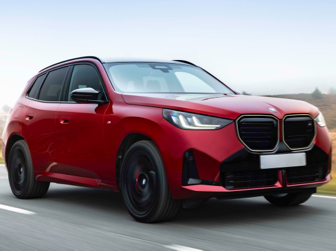The Bright Side of Phasing Out Driver’s Licence Cards in South Africa
Over the last two decades, South Africa has relied on a single, outdated machine to produce driving licence cards — a relic prone to breakdowns, with turnaround times of up to 14 working days. This bottleneck created a staggering 1.3 million-card backlog in 2022–2023 alone.
To address this, the government is investing over R1 billion in three new licence card machines — two for primary production and one for disaster recovery. But critics say this is not just an outdated fix to a modern problem — it’s an expensive one that ignores the obvious solution: going digital.
“There is no technological or practical obstacle to digital licensing and enforcement,” said Rob Handfield-Jones, road safety expert and managing director of Driving.co.za. “If SARS can collect tax with an app, surely traffic officers could police drivers with an app.”
A solution that’s already in our pockets
Most smartphones in South Africa already support QR code scanning and digital storage. The infrastructure needed for digital licences is already in place.
“Every driver has fingerprints, and every vehicle has a VIN,” Handfield-Jones added. “An app could almost certainly be developed and launched for a fraction of what the government plans to spend.”
So why is the government still pushing for new physical card machines? Experts argue that it boils down to one thing: money.
Your car and drivers licence: A billion-rand business
Producing 60 million licence cards over the next 20 years would cost about R16 per card, according to Handfield-Jones, or R20 including running costs. But South Africans are charged over R200 for each renewal. “The government will milk it ad infinitum unless the citizenry puts a stop to it,” he said.
This discrepancy means the government could rake in nearly R11 billion in pure profit over two decades from licence renewals alone.
Even Outa (Organisation Undoing Tax Abuse) has expressed concern, pointing out that this approach prioritises revenue over road safety and efficiency. Outa CEO Wayne Duvenage has called for longer validity periods on licences and a move to digital formats, which would drastically reduce costs and queues.
The broken tender system
The current plan to introduce a digital licence alongside the new physical card is riddled with controversy. The tender for the new system was awarded to French company Idemia in 2024 — but its legitimacy was immediately questioned.
The Auditor-General flagged irregularities in the tender process. Despite this, Transport Minister Barbara Creecy has been advised against cancelling the contract, as doing so could trigger lengthy legal battles.
“If Idemia challenges the cancellation in court, Outa and possibly other tendering companies will not hesitate to oppose them,” Duvenage said. This mess underscores a larger concern: that the government is more invested in the tender process and its financial perks than in improving road safety or service delivery.
The human cost of a flawed system
Beyond the bureaucratic failures, there’s a darker consequence: lives lost due to licensing corruption. “The fatality rate has at least quadrupled since 1998, so there is no evidence that card renewals have been of any benefit,” said Handfield-Jones.
He explained that driving test corruption and a broken system have contributed to over 300,000 excess road deaths in the past 25 years. Many drivers, he says, paid for licences without ever learning basic driving skills — a systemic issue with deadly consequences.
“We are talking about people who cannot brake or steer properly — the equivalent of a learner with 3–4 hours of instruction,” he warned.
Will we see a brighter road ahead for online licences?
Despite the flaws in execution, there’s hope on the horizon. The Department of Transport has stated that digital licences — known as eDLs — are part of their future roadmap, with rollout expected between now and 2026.
Countries like Denmark, Norway, and Mexico already use digital licences stored in mobile wallets or accessed via secure apps. South Africa could follow suit — if political will outweighs profit.
Ultimately, the choice is between clinging to outdated, revenue-generating systems — or building a safer, more efficient, and digitally empowered licensing future for all South Africans.
While you’re waiting for your licence or you’re in the process of getting one, it’s important to know your rights, especially when you’ve been pulled over at a roadblock. For more, you can find the best tips here on how to handle roadblocks and police.
How to save money on car insurance
Toyota Vitz: SA’s Cheapest Car Now Safer with Longer Service Plan


